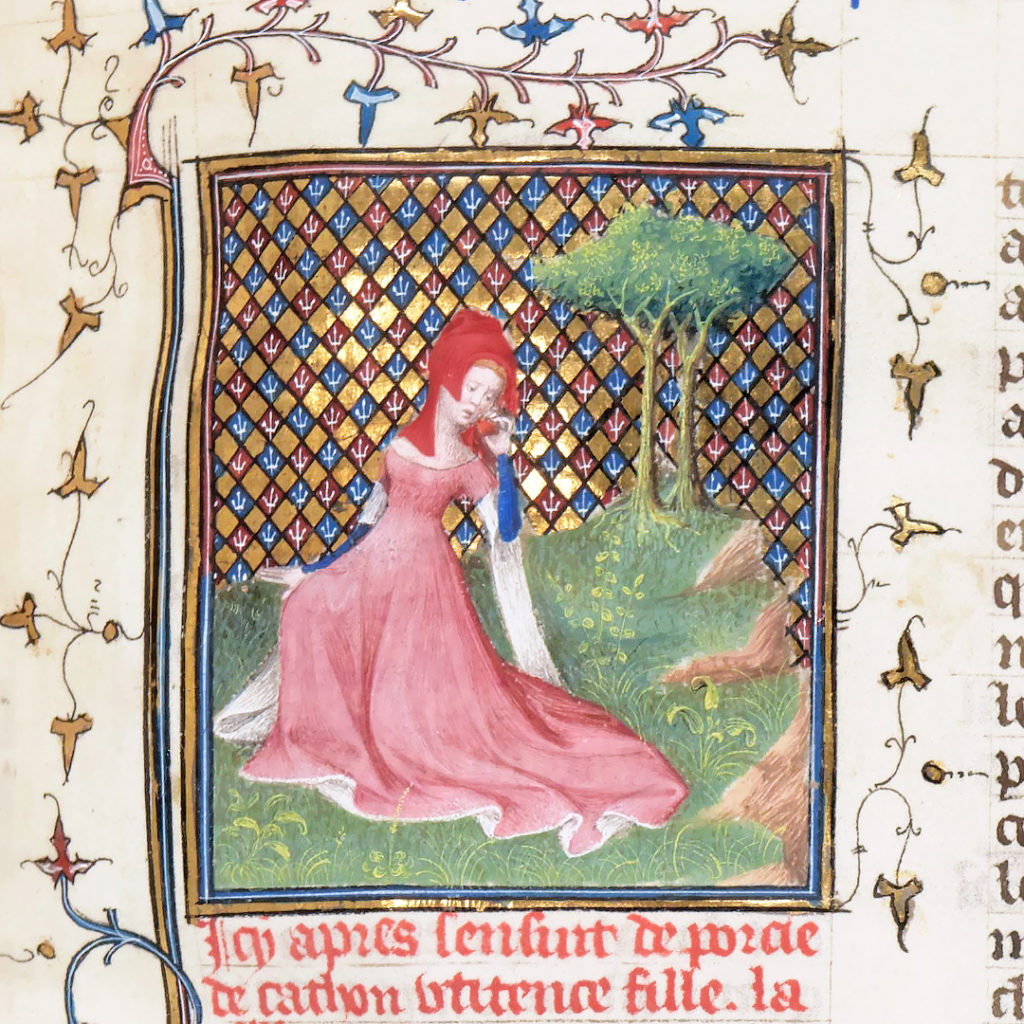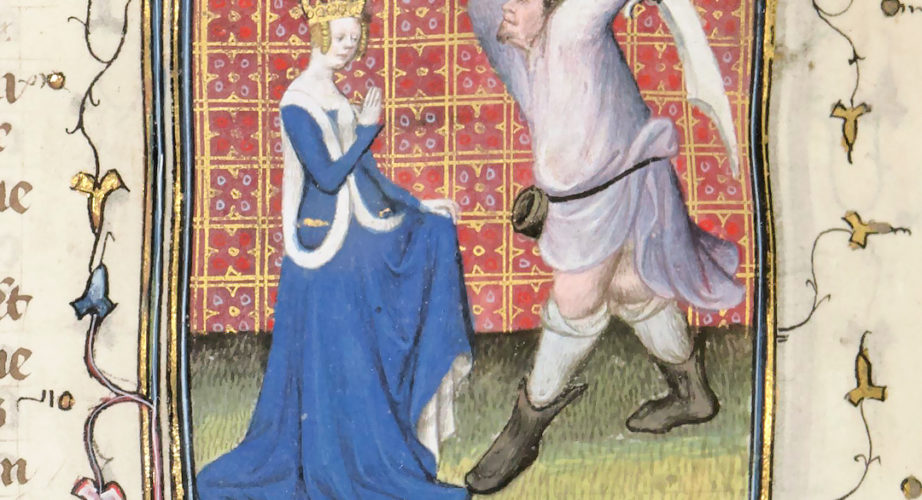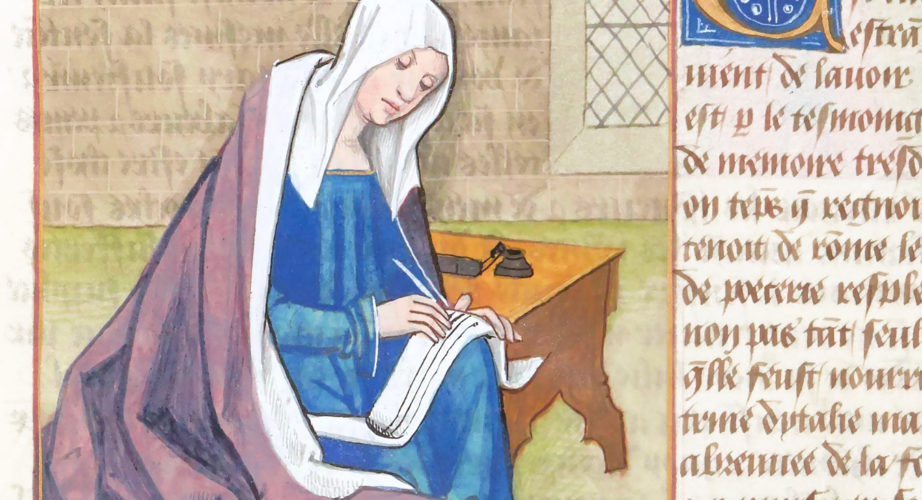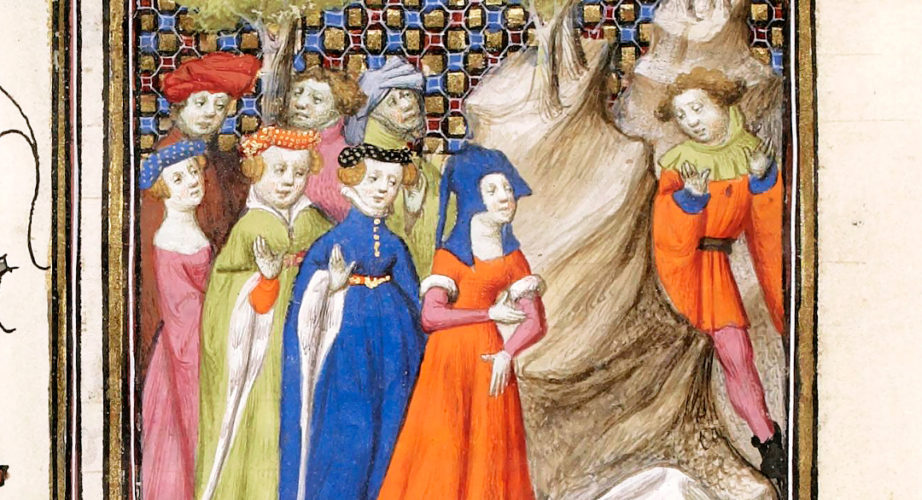Porcia

Love, like death and truth, is immortal. It is what we have been talking about since we discovered stories. And love, as much as death and truth, is what this week's Mulier Clara is remembered for.
Born between 73 and 64 BC, Porcia was the daughter of Cato the Younger, a Roman senator and a follower of Stoic philosophy. She grew up educated and well-read, with a keen interest in philosophy. Combined with her affectionate nature, celebrated by both historians and writers such as Boccaccio himself, she was a charming young wife for Marcus Bibulus, a commanding admiral her father needed as a political ally.
But it was her second husband, eventually, the one to become famous. After Porcia had become a widow in 48 BC, Marcus Junius Brutus divorced his first wife just to marry her.
Being both spouses devoted to each other, Porcia was used to know everything about her husband; therefore when, days prior to the assassination of Julius Caesar, Brutus was not open about his plans with her, she believed the sudden change was because of her gender. Women, in fact, were deemed incapable of keeping secrets, especially under pain. To prove Brutus she was worthy of his trust, she showed him where she had intentionally cut her thigh days before, thus proving herself capable of being the perfect confidant.
After the Ides of March, Brutus had to flee Rome and leave Porcia behind. Heartbroken and alone in Italy, she had no way to hear about the well-being of her beloved. So, when she heard Brutus had died, she was desperate enough to commit suicide, allegedly by swallowing hot coals. Even though historians do not agree on this version of the events (some say she died because of the plague a year before, others do not agree on the method she chose to commit suicide), it is the one that has inspired authors throughout history. Boccaccio believed it to be real, as evidence of the strength of her love.
"Porcia”, illumination from the manuscript “Cas des nobles hommes et femmes”, ms. Français 12420, f. 123r, 1401-1500, Bibliothèque nationale de France, Département des manuscrits, Paris-


